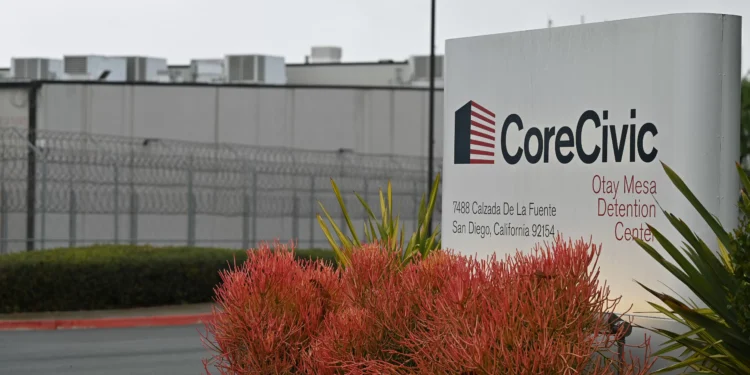In a recent budget proposal, President Donald Trump has allocated a staggering $45 billion for immigration detention in what he calls the “Big, Beautiful Bill”. While this has sparked controversy and outrage among many, there is one industry that is looking forward to reaping the benefits – the private prison industry.
For years, private prisons have been lobbying for stricter immigration policies and increased funding for detention centers. With Trump’s budget, their long-sought win has finally come to fruition. This move not only solidifies the administration’s stance on immigration, but it also promises to bring in soaring profits for the private prison industry.
The $45 billion allocated for immigration detention is a significant increase from the previous year’s budget, which stood at $3.2 billion. This massive jump in funding is a clear indication of the administration’s priorities and their unwavering support for the private prison industry. It is estimated that this increase will result in a 500% increase in profits for private prison companies.
This news has been met with celebration by the private prison industry, with stocks of major companies like CoreCivic and GEO Group soaring after the budget proposal was announced. These companies, which have been accused of human rights violations and mistreatment of detainees, are now set to make record profits thanks to Trump’s budget.
But what does this mean for the future of immigration detention in the United States? With more funding, private prisons will have the resources to expand their facilities and increase their capacity. This will undoubtedly lead to more individuals being detained, including families and children seeking asylum. The already overcrowded and inhumane conditions in detention centers are bound to worsen, and the private prison industry will continue to profit from the suffering of others.
The Trump administration’s close ties with the private prison industry are no secret. Trump’s former chief of staff, John Kelly, was a board member of a company that operates immigration detention centers. And the current head of Immigration and Customs Enforcement (ICE), Thomas Homan, has also expressed his support for using private prisons for immigration detention.
This cozy relationship between the government and the private prison industry raises serious concerns about the motives behind the increased funding for immigration detention. Is it truly about national security and enforcing immigration laws, or is it simply a ploy to line the pockets of private prison executives?
Moreover, this budget proposal goes against the growing movement to end the use of private prisons in the United States. In recent years, there has been a push to end contracts with private prison companies due to their track record of human rights abuses and lack of accountability. This budget proposal is a step in the wrong direction and sends a message that the government is willing to prioritize profits over the well-being of individuals in their custody.
In conclusion, the $45 billion allocated for immigration detention in Trump’s budget is a major victory for the private prison industry. It solidifies their position as a key player in the immigration detention system and promises to bring in record profits. However, this move raises serious concerns about the administration’s priorities and the future of immigration detention in the United States. It is a clear indication that the government is willing to prioritize profits over the well-being of individuals in their custody, and it is up to us to hold them accountable and demand change.






